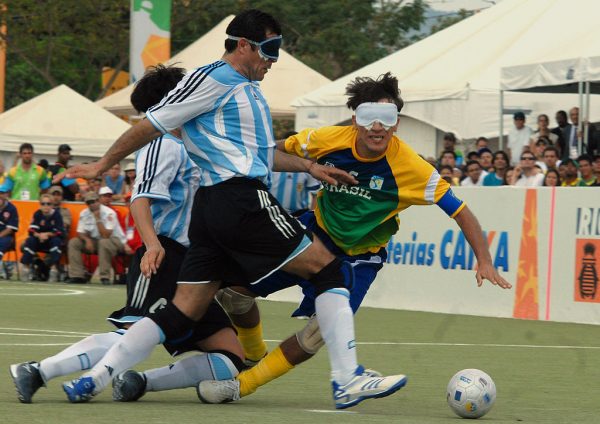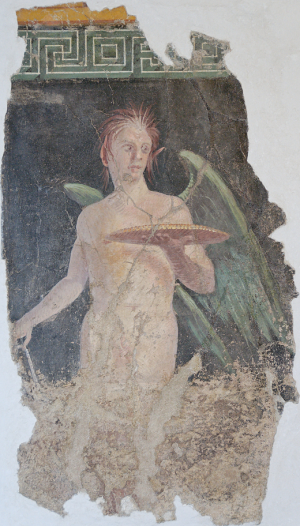
Why did I choose to make philosophy part of the disruptive mindset? I think that intuition, creativity, and curiosity are all areas of exploration, and to me, that is what philosophy is, exploration.
If intuition is ‘knowing without knowing’ then philosophically you are born successful because you already know. Where we get tripped up is when what we know conflicts with tribal beliefs. And tribal beliefs are doctrines that collective groups have agreed upon to be true whether they actually know it to be right or not.
For example, tribes once believed the world was flat, or that the universe was earth-centric (geocentrism), meaning all the other planets and stars revolved around the earth.1
That made me wonder which came first, flat earth or God?
Even though God (supposedly) created the earth (in Genesis), turns out flat earth was here first.
But enough about religion. This topic could take years to discuss. Wait a minute, it has!
This is exactly what philosophy does. It opens up the doors to curiosity and wonderment. And this leads to discovery.
Why, then, is the topic about failure?
I believe that failure is necessary for creativity, which can lead to… discovery.
Why Do We Call It Failure?
It occurred to me while writing this article that time after time I come across examples of people who welcome failure into their lives. Some actually get charged up when failure occurs. It’s like a challenge being thrown down to see what they can do next.
Suddenly, the philosophical premise becomes, if you fail, have you really failed? Is the act of trying and then failing really failure, or just a first attempt at discovery or creation?
Society has tied failure to shame, disappointment, losing, and not being good enough. Not being a winner.
But when looking at examples of people who are highly successful, they talk about how much their failures helped them to succeed. And we love their stories because they didn’t give up in the face of failure and in fact came through it with satisfaction at having tried.
Agatha Christie’s works were rejected for five years. Now she has become the standard others strive for. Jack Canfield and Mark Victor Hansen got rejection after rejection with their highly successful Chicken Soup for the Soul series. We all know about the many rejections JK Rowling encountered while submitting her Harry Potter books. T-Boone Pickens, Elon Musk, Richard Branson, Michael Faraday, Nikola Tesla, and Thomas Edison are all examples of people who experienced many failures in their lives and rose high above.
For many of us, we get held up by uncertainty because we contemplate the possibility of failure, which inhibits our capacity to take risks or even push through. This can overwhelm and create fear, which can leave us stuck and immobile.
I love Julia Child’s quote about fear:
Cooking is about one failure after another.
That’s how you learn.” ~ Julia Child
Instead, she recommends developing what the French call je m’en foutisme, or an “I don’t care” attitude.”
but I’m going to learn,” she declares powerfully.
“I shall overcome.”
Being Blind to Failure
This is an interesting spin on failure. Have you ever heard of an athletic team called The Bats? Actually, that’s the English translation. Their real name is Los Murciélagos. They are a blind soccer team from Argentina. Their coach, Gonzalo Vilariño is a lawyer and physical education teacher. And he’s a professional challenge-seeker.
The idea of failure wasn’t the teams, it was Gonzalo’s. Could he really lead this team, and secondly, could they become competitive?
At first, he was surprised at how many things they could already do with proficiency, swimming, exercise, and playing cards. And when he saw them play soccer, he was amazed and inspired. He quickly learned that the ball made a noise so they could follow its sound and locate it.
A guide would also stand behind the opposing team’s goal so he could let them know where to kick the ball. It was pretty incredible, but the real question for Gonzalo was, how far could they take this?
Having come from the successful Argentinian National Rowing Team, he soon learned that this was twice as hard for him as a trainer. He couldn’t approach training the same way he had done with the rowing team. He first had to learn to speak the language of the unsighted. He had to forgo thinking in terms of sight and figure out ways to train to their other senses, hearing and touch.
Once he got a good training conversation going, Gonzalo wondered, “Why couldn’t this team become a high-performance team and not just a small field soccer team?”
He had to first learn if that is what they wanted. No one before had considered that to be an option.
So, he pushed them to train harder, going from three hours a day to pushing them to really challenge and stretch their own levels of performance.
When the time came, they approached CENARD, the National Center for High-Performance Sports in Argentina.
The second failure came when CENARD initially resisted, as did other athletes who also practiced there. In fact, they were only allowed to use the field when no one else was around. They were labeled “the blind ones.” No one could see them as a serious team, and people couldn’t understand why there were even there.
The 2006 World Championship held in Buenos Aires was the turning point. They were to play against Brazil, who was at the time, the best team in the tournament. Every game had been a landslide for them. They were the reigning champs. Failure was a big concern for The Bats. Were they even ready?
At one point, during a pregame strategy meeting, a young boy knocks on the door, interrupting their strategy session, wanting to invite them to church to pray before the big game. He told them that the pastor there performed miracles and that if they came, he promised that at least half the team would be able to see.
They were already nervous about the game, and one of the players told the kid that this wasn’t the best time to go to church, and, “Besides, let me make this clear: if we go to that church, and I end up being able to see when we return, I will beat you so hard, I won’t be able to play tomorrow.”
That helped to ease some of the tension among the players, and the boy laughed, but he understood.
During a blind soccer game, the crowd is not allowed to cheer or applaud so that the players can hear where the ball is located. They are only allowed to cheer afterward. But at eight minutes left in the game, the crowd cheered this team that no one thought was even remotely ready to compete.
Los Murcielagos won two world championships, the gold medal at the 2015 IBSA World Games for the Blind, a silver medal and two bronze at the Paralympic Games, three runners-up world championships, three American championships, and four silver medals at the Parapan American Games.2
Gonzalo said he was lucky to have been part of this team for 10 years, first as a trainer and later as their coach.

https://upload.wikimedia.org/wikipedia/commons/5/5a/Football_5_Parapan_2007_Final.jpg
It’s said that in order to deal with failure, you must adopt a framework of being resilient. One needs to learn from their mistakes, not avoid making them. Resilience is rebounding after a failure.
Elizabeth Gilbert, author of the successful book Eat, Pray, Love, was rejected for six long years. Authorship seems to be one of those fields where failure and rejection are going to be part of the process. I too have experienced a number of rejections, and one can’t help but take it all personally.
When you fail, when you’re rejected, you can’t help but think about what you are doing wrong.
It’s very devastating to be rejected and, at least for myself, I began to wonder if I just wasn’t smart or talented enough. Doubt sets in big time.
And like Gilbert, I too kept wondering if I should just quit and give up while I was behind and spare myself the pain of failure.
But for whatever reason, like most creative people, I had nothing else to fall back on. I couldn’t see myself just doing a 9-5 job in order to survive, that offered me nothing more than a paycheck. And while I admire those who do, solely to put food on their table and clothes on the backs of their families, something inside would not let me give up, even though the pain of rejection could be so brutal at times.
And they say it’s nothing personal, right or wrong, it’s just someone’s opinion, but one can’t help but feel it is personal.
Gilbert said something beautiful. She said to herself, “I’m not going to quit, I’m going home.”
But for her, going home wasn’t a family farm she could return to, for Elizabeth, going home meant returning to her writing because writing was her home, because she loved writing much more than she hated failing at writing. She also said that she loved writing more than she loved her own ego.3
And for me, and what I teach about disruptive thinking, it is ego that can get in the way of what you are truly inspired and passionate about.
I also think that another part of fear of failure is that others won’t see us. We won’t be recognized, acknowledged, or praised for our hard work, our discoveries, or our efforts to bring something new and unique to the world. In this way, fear of failure is about not being recognized or rewarded for your efforts. And this can consume us so much that we become afraid to even try, even though we know that being afraid doesn’t serve us.
What then, is ego, really? Ego is about our need to fit in. To be recognized. To be appreciated. To feel like we matter. We always talk about people having big egos, those people who come off as self-important, or bigger than the rest of us, but ultimately, ego is about worth and validation.
When you can put ego aside, when the process of exploration, discovery, and creativity become greater motivators than your need for validation and worth, then failure has little place in the process.
What I call genius, what I attempt to teach how to access, the Romans used to refer to as some outside divine entity believed to assist and shape a creative’s work and shape the outcome (Genii). So if you think about it, when an artist or creative failed back then, it wasn’t their doing… It was the ‘geniuses.’

From the peristyle of the villa of P. Fannius Synistor in Boscoreale, near Pompeii. (artist unknown)
When we finally accepted that it was the person who was the creative, and not some external entity, we began to call the creator a genius, not some outside thing. This trend toward creatives being the genius was most prevalent during the renaissance period.
And again, returning to Elizabeth Gilbert, she feels that was a mistake, because it placed all the pressure on the creative person to produce something everyone would love.4
Just as some people think that creativity isn’t always rational, neither is our view of failure. Failure is subjective, and often so for the person willing to take a risk towards his efforts.
The trick, as I am learning, is to keep showing up. Because… what’s the alternative? Living a life you’ll never be satisfied with. Perhaps, in this light, the opposite of failure is not success, but instead breath, life, passion, inspiration, and effort. Showing up and doing the work no matter the outcome.
Ego is about how you want to be perceived in the eyes of society. Character, however, is about who you are. And if you are someone willing to take a chance on yourself, then failure will be part of that process because failure is not the stepping stone to success, failure is one’s willingness to see what’s on the other side.
Miguel de Cervantes Saavedra, author of Don Quixote, said,
“The journey is better than the inn.”
It was a tongue and cheek reference to how lousy the inn was, but it also meant that the experience and adventure were much more rewarding than the results.
If we approach everything with this same philosophical outlook, failure then becomes an important part of the process, not the result, and therefore we are able to accept failure as an essential tool toward shaping who we become.
FOOTNOTES
https://en.wikipedia.org/wiki/Geocentric_model
https://second.wiki/wiki/seleccic3b3n_de_fc3batbol_para_ciegos_de_argentina
https://www.ted.com/talks/elizabeth_gilbert_success_failure_and_the_drive_to_keep_creating
https://www.ted.com/talks/elizabeth_gilbert_your_elusive_creative_genius